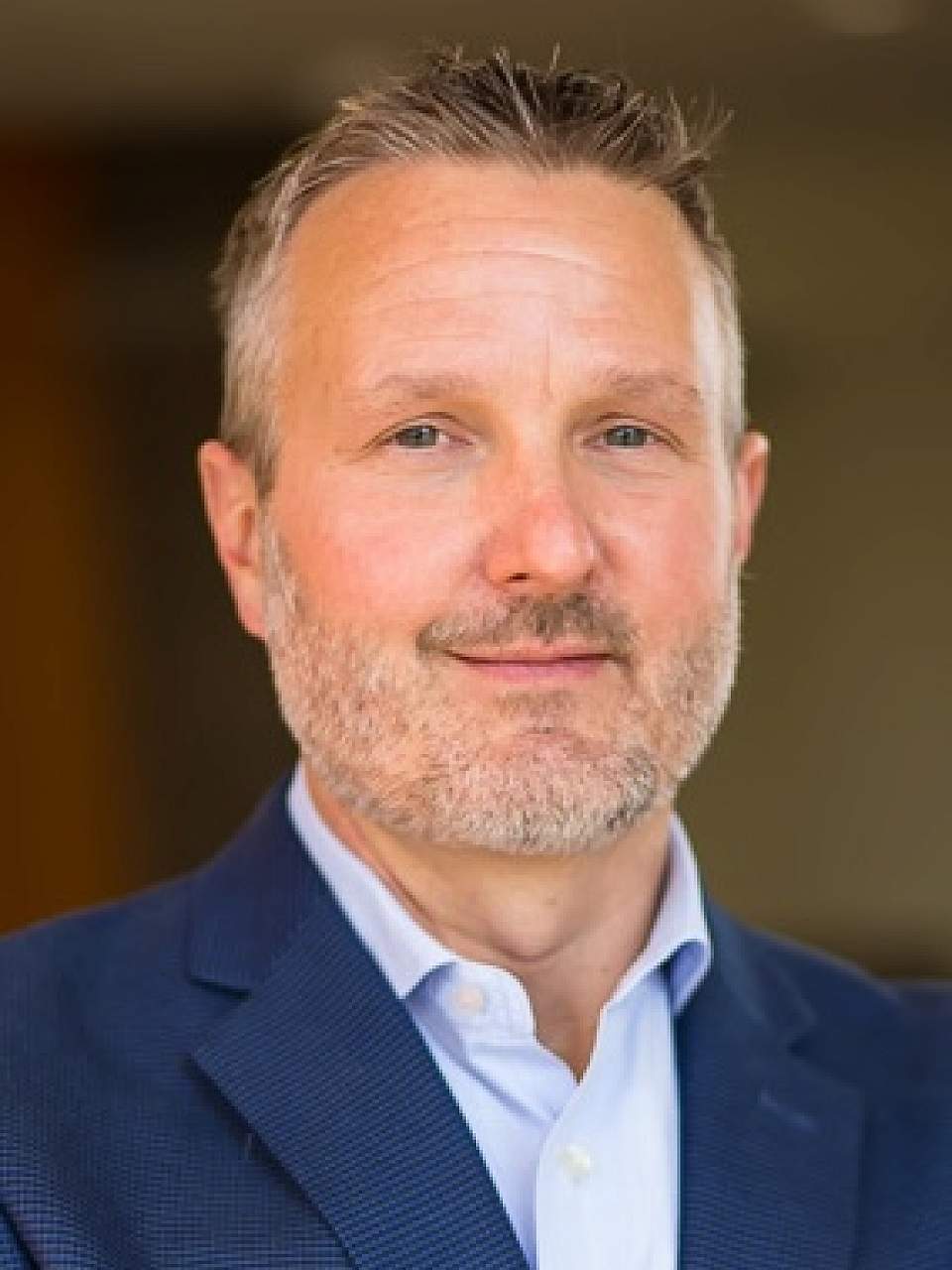Voices of U of U Health
Leader Profile: John Barrett Champions Community-Rooted Care
By John Barrett, MD
If I had to describe my career path in one phrase, it would be “Choose your own adventure.” That’s how it felt—each step shaped by teamwork and a willingness to follow opportunities that didn’t always look like opportunities at first.
My journey took me from a small town in Mississippi to New York City, then to Native American reservations in the Southwest, and eventually to Salt Lake City. Now, I’m honored to lead the Department of Family & Preventive Medicine at the Spencer Fox Eccles School of Medicine at the University of Utah Health.
From Mississippi to Medicine
My parents and the family business had a big influence on my path to becoming a doctor. My father was a pharmacist in my hometown of Mendenhall, Mississippi. My parents owned the drugstore where he practiced for more than 40 years.
Community members called my father “Dr. Frank.” I observed him counseling people from all walks of life about their health. The level of trust they had in him left a lasting impression on me. By high school, I knew I wanted to pursue health care.
Between my freshman and sophomore years at Ole Miss, I worked as an orderly at the local hospital. I bathed, shaved, and tended to the hygiene needs of elderly men unable to care for themselves. On several occasions, my dad returned from work to tell me about how a patient’s family member had expressed heartfelt gratitude for the care I provided. I felt connected to the community and part of something meaningful.

Attending medical school at Columbia University in New York City was a huge leap for a small-town kid from Mississippi. That experience taught me how to stay grounded in who I was while learning to lead in environments that felt entirely new.
My residency in Grand Junction, Colorado, helped anchor me in rural family medicine, and I spent seven years practicing on Native American reservations in the Southwest. That period of my life reshaped how I think about equity, access, and the cultural nuances of care. It was humbling—and incredibly formative.
Leading by Listening
Eventually, I joined University of Utah Health as an urgent care physician at Redwood Health Center. I’ve always been vocal about how systems can work better—for patients and providers. That openness led to my role as medical director for the Community Physicians Group. We grew to nine clinics across the Wasatch Front and, more importantly, built a culture that people wanted to be part of.
That team taught me what real engagement looks like. I learned that leadership isn’t about directing—it’s about listening, building trust, and creating space for people to do their best work.
When U of U Health consolidated its community-based practices under one department, I was asked to serve as interim chair for family and preventive medicine. I said yes—because I believe in the people here and the potential of this department. Now, I have the privilege of helping shape what comes next.

Courage and Love
The two values I keep coming back to are courage and love. I strive to live these values at work and in the rest of my life.
Courage means stepping into hard conversations. It means confronting your own blind spots. It means letting go of ego when someone else has the better idea. And it also means having the humility to lead in uncertain spaces.
Love is about caring deeply—about your family, your friends, your colleagues, your patients, your community. It’s making space for people to feel safe, to belong, to grow. I may not always get it right, but when I do, I’m a better leader and friend, a better father and husband.
A Health System That Reflects Our Communities
The Department Family & Preventive Medicine sits at the intersection of public health, education, and community-based care. One of our core goals is to improve access to care across Utah. That aligns deeply with my personal mission. In both rural and urban areas, too many Utahns still face barriers to care—whether it’s geography, cost, or workforce shortages.
There simply aren’t enough family physicians. That’s true nationwide, and it’s especially urgent here. We’re working hard to grow the pipeline—training more physicians while supporting nurse practitioners and physician assistants as essential members of the care team. We need a robust, team-based model that adapts to what our communities need.
We also can’t ignore the economics. Primary care doesn’t generate the kind of revenue that drives most health systems. But it’s the foundation of a healthier population. We have to keep making the case for better funding, better policies, and more focus on prevention and wellness.

Building Momentum for the Future
I’m especially excited about our work in research and community engagement. Through the Utah Health Research Network (UHRN), we’re connecting clinics across the state to participate in research that’s relevant and actionable. What we learn in one community can help another. That kind of knowledge sharing is powerful.
We’re also doubling down on community partnerships—not just in rural towns, but in underserved urban neighborhoods as well. We’re showing up, listening, and building relationships that last. That’s how we create real, sustainable impact.
The Real Heroes
The truth is that the story of this department belongs to the clinicians, researchers, educators, and staff who come to work every day with energy, commitment, and pride.
My job is to keep that spirit alive—to clear the path, connect the dots, and keep us moving forward together. This is a department where optimism still thrives, even in the face of serious challenges. That’s rare—and it’s something I don’t take for granted.
We’ve chosen a challenging adventure, but we’ve chosen it together. And I believe, deeply, that we’ll help make Utah a healthier, stronger place to live, work, and care.
